If you have scalp psoriasis, a flare-up can turn your head into a scaly itchfest in a flash.
But how do you spot scalp psoriasis? And how can you even get it? Here’s an overview on all things scalp psoriasis.
Scalp psoriasis 101
Scalp psoriasis is a type of psoriasis that’s on or near your scalp. This can look like scaly red, pink, or purplish patches (aka plaques) on your skin.
We don’t know the exact cause of scalp psoriasis, but it’s linked to genetics, nutrition, and even body weight.
There’s no cure, but you can totally manage scalp psoriasis with meds and other treatments.
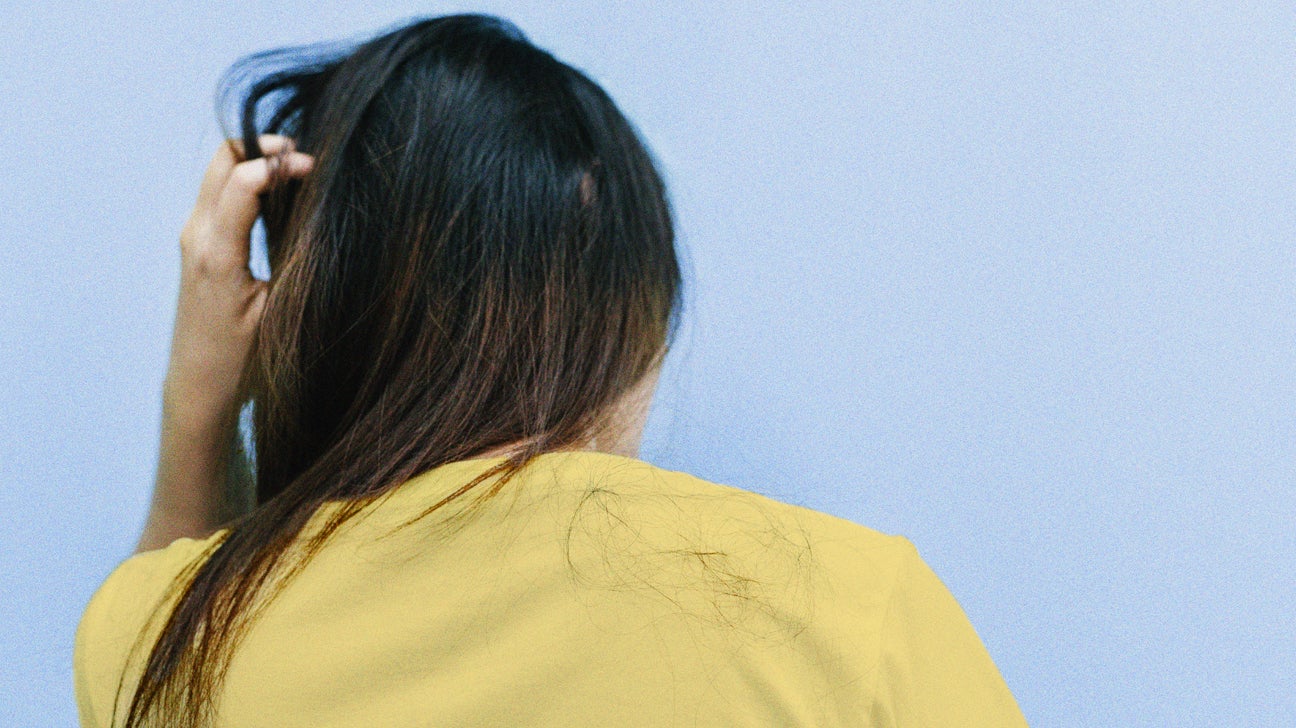
What is scalp psoriasis?
Scalp psoriasis is an autoimmune condition that causes chronic scaly, discolored, or flaky patches (plaques) on the skin near or on your scalp.
On light skin these patches can look red or pink with silver scales, while psoriasis on black skin can look purple or dark brown with gray scales.
Scalp psoriasis is very common. According to the American Academy of Dermatology (AAD), about 50 percent of peeps with chronic plaque psoriasis will have a flare-up on their scalp.
What causes scalp psoriasis, anyways?
Researchers don’t know the exact cause of scalp psoriasis. But, according to a 2016 study, it appears to develop when your immune system sends certain signals to your skin cells. This makes your cells multiply too quickly, leading to those scaly patches.
According to a 2016 research review, these other factors are also associated with psoriasis:
- genetics
- nutrition
- body weight
Some folks also claim allergies are to blame, but there’s not enough evidence to back this up.
Psoriasis flare-ups in general can also be triggered by:
- stress
- infections
- a skin injury like a cut, burn, or bruise
- certain medications such as indomethacin (for arthritis), beta-blockers, lithium, and some antimalarials
What are the main scalp psoriasis symptoms?
Scalp psoriasis symptoms can range from mild to severe. Common symptoms include:
- dryness
- raised pink, red, purple, or discolored patches
- itching or burning
- flaking that looks like dandruff
Symptoms usually appear on your:
- face
- ears
- neck
- forehead
- scalp
If you have scalp psoriasis *and* dandruff, you actually have a condition called sebopsoriasis.
What does scalp psoriasis even look like?
Can scalp psoriasis cause hair loss?
Psoriasis can indirectly cause hair loss. Giving in to scratch attacks on the reg or using harsh treatments can make you lose some of your luscious locks. Thankfully, your hair should grow back after your skin clears up.
The AAD offers these tips to help prevent hair loss:
- Avoid blow dryers and other hot tools.
- Don’t use products that contain irritants.
- Keep your scalp moisturized with a top-notch conditioner.
Scalp psoriasis treatments
While there’s currently no cure for psoriasis, there are a ton of over-the-counter (OTC) treatments and prescription medications that can help. The exact type of treatment you’ll need depends on the severity of your symptoms.
OTC topical treatments
Look for OTC products that have:
- Corticosteroids. They can ease itching and might reduce scaling. Just be sure to watch your usage, because overkill can cause skin atrophy, according to a 2014 review.
- Salicylic acid. According to research from 2016, topical cream with 5 to 10 percent salicylic acid could reduce scaling. It can also help other products penetrate your skin.
Shampoos
Psoriasis shampoos contain ingredients that may help ease symptoms, like:
- Salicylic acid. This helps slough off excess skin cells.
- Clobetasol propionate. According to research from 2016, shampoos with 0.05 percent clobetasol propionate are effective and safe for initial scalp psoriasis treatment and maintenance. But, according to the FDA, you shouldn’t use these products for more than 4 weeks at a time.
- Coal tar. This used to be a tried-and-true method of psoriasis care. But some research suggests coal tar might not be safe or effective. Definitely consult your doctor before trying this option.
Medical treatments
If OTC psoriasis treatments don’t work, your dermatologist might prescribe meds or alternative treatments like:
- steroids
- light therapy
- laser
- biologic medications
- methotrexate
- oral retinoids
- cyclosporine
Heads-up: Is your scalp psoriasis treatment not working anymore? Some medications and treatments decrease in effectiveness over time. So, you might have to rotate or combine your treatments for the best long-term results. Your dermatologist or doctor can help you navigate your options.
Alternative treatments and home remedies
While they’re not proven to banish your scalp psoriasis, some of these “natural” treatments and scalp psoriasis home remedies *might* help reduce symptoms on your whole body:
- oatmeal baths
- aloe vera
- Dead Sea bath salts
- capsaicin ointment
- apple cider vinegar
- herbal solutions like Oregon grape (Mahonia aquifolium)
- tea tree oil shampoo
- topical turmeric (aka curcumin) or turmeric supplements
- acupuncture
You can also try to make lifestyle changes that may help prevent or keep psoriasis flare-ups at bay, like:
Bottom line
Scalp psoriasis can be a literal pain, but it’s nothing to be ashamed of. Plus, there are lots of ways to keep the itching at bay. Here are some tips for managing the condition:
- Moisturize. Keep your scalp hydrated to soften scales.
- Be gentle. Avoid harshly washing or brushing your hair. Stick to lukewarm water and calming products.
- Avoid scratching. Obvi this is a tough one, but scratching can lead to temporary hair loss, bleeding, or infections.
It’s also uber-important that you seek treatment. Your doc can give you a prescription to get your scalp back on track.
from Greatist Health RSS Feed https://bit.ly/37LfTnB

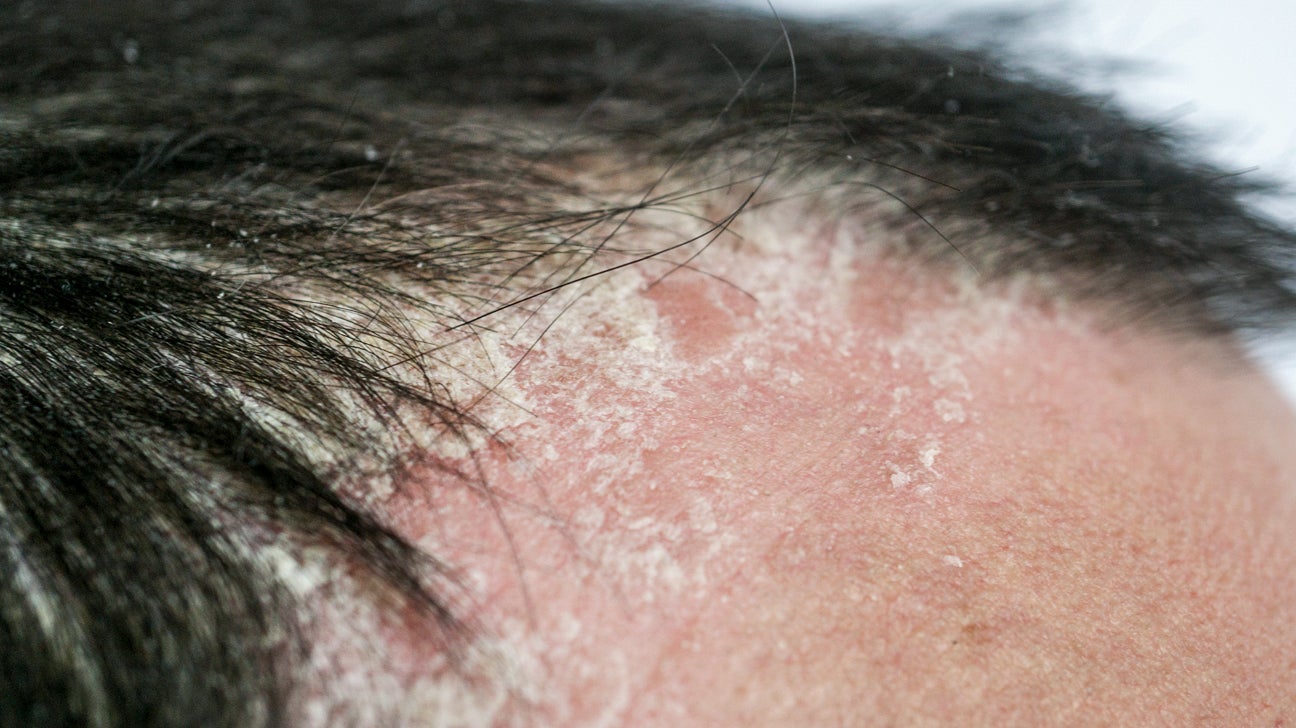
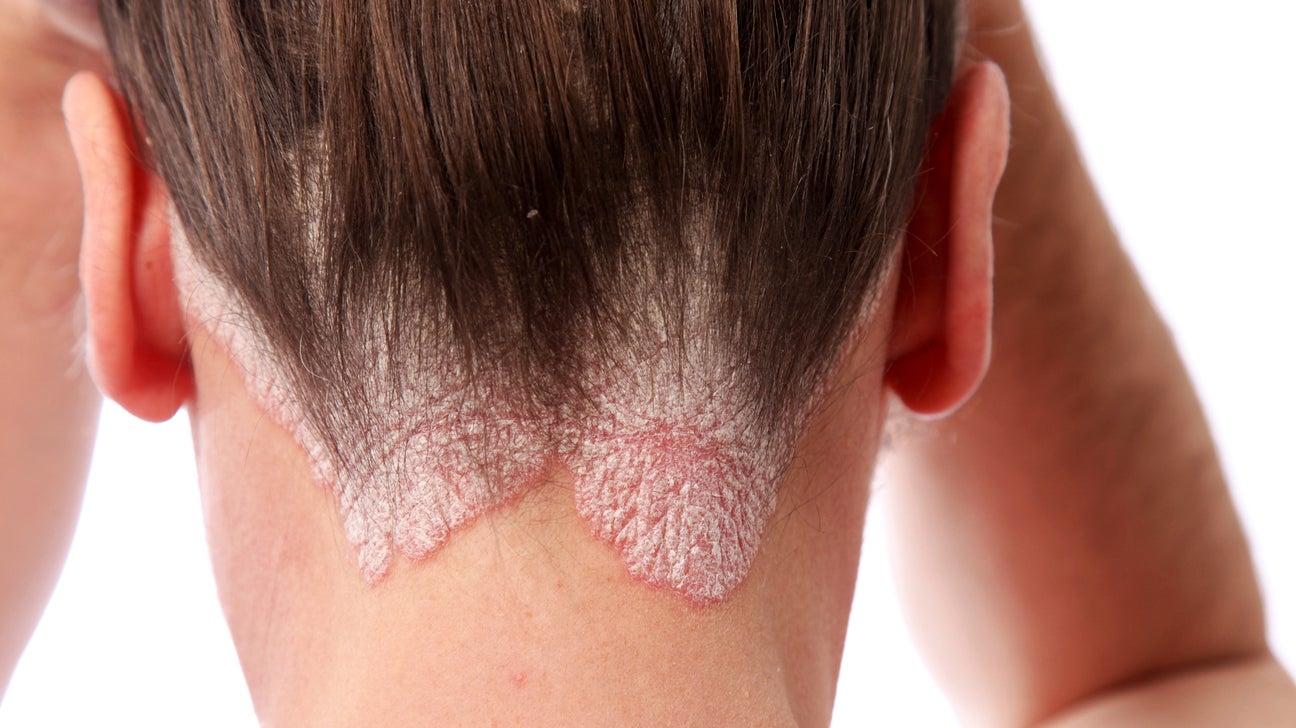
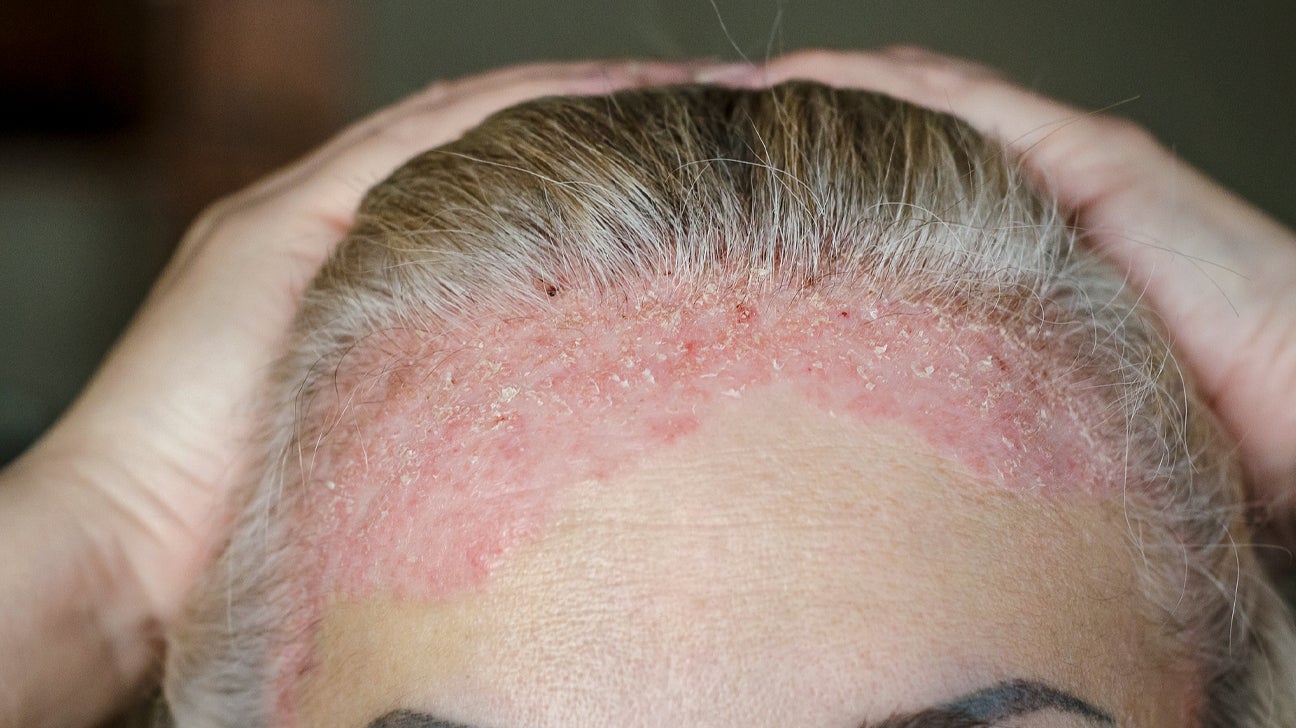
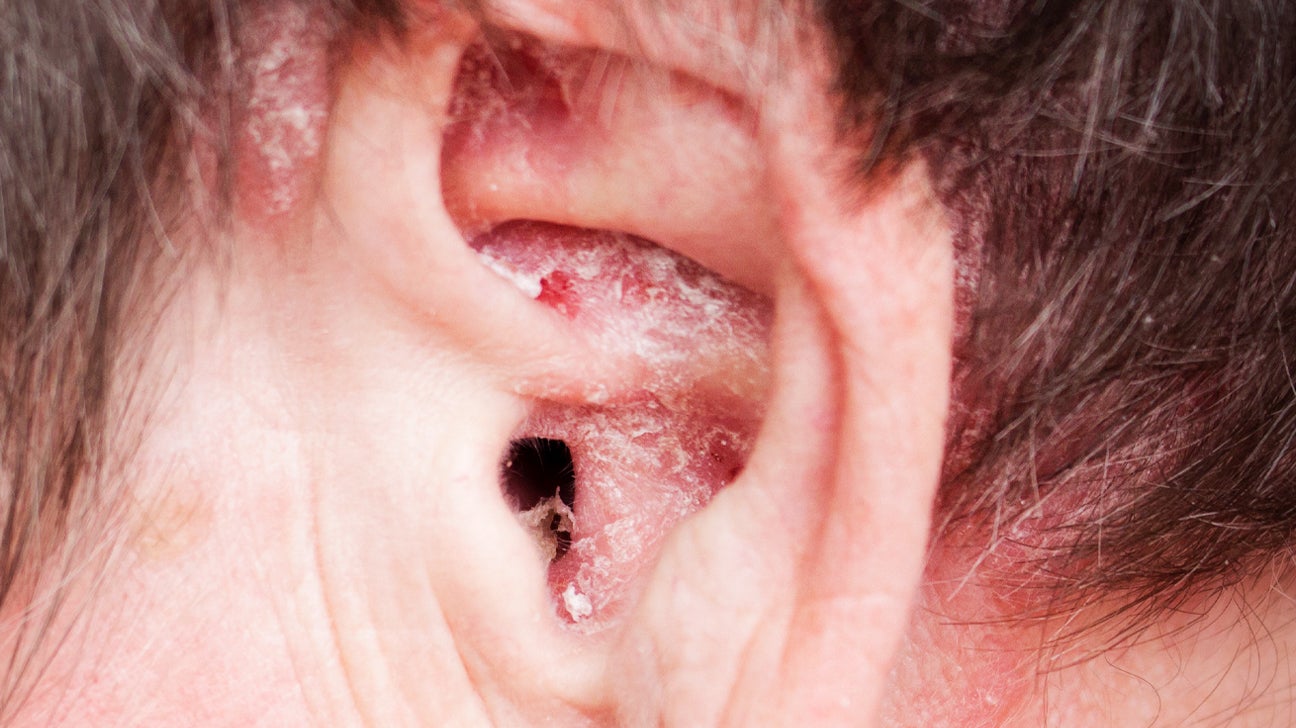
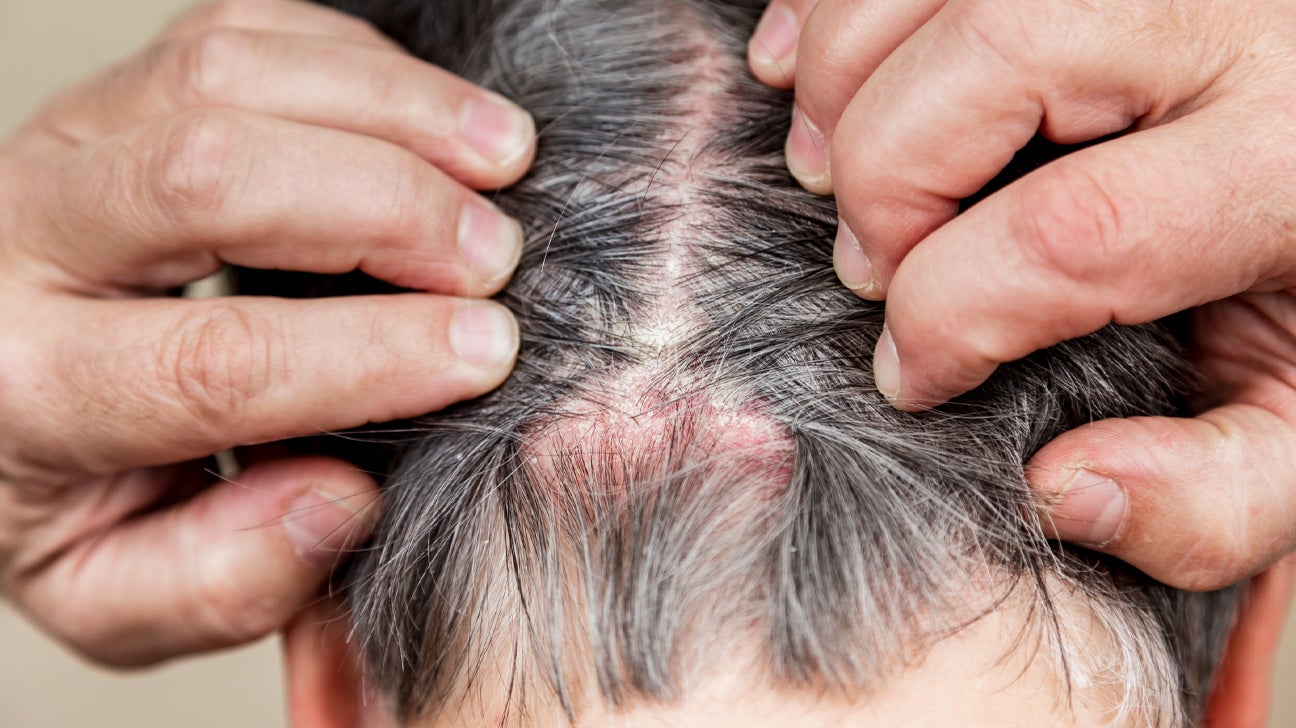
No comments:
Post a Comment